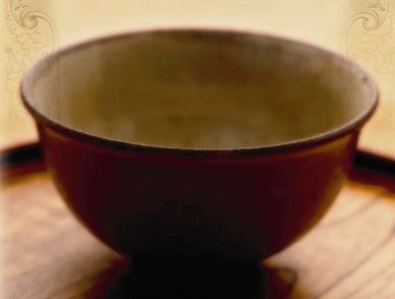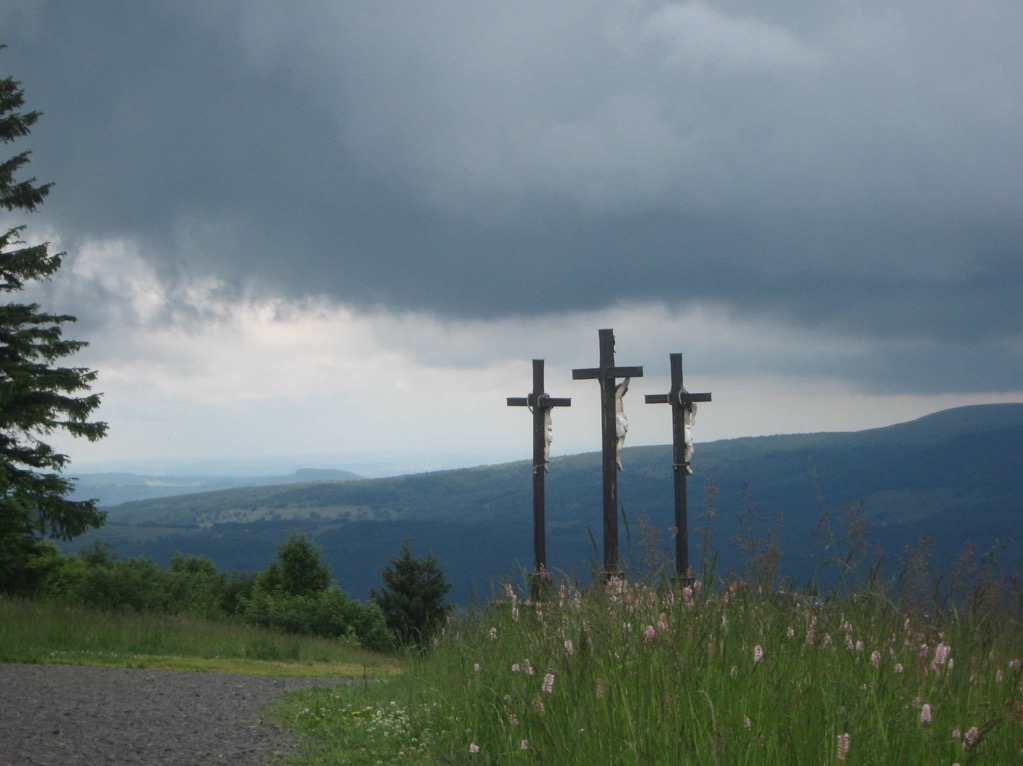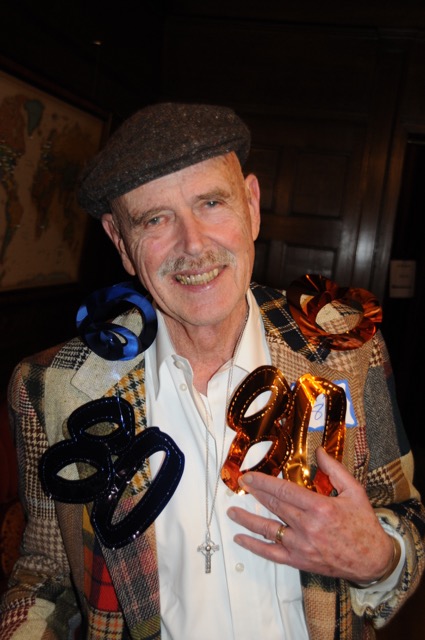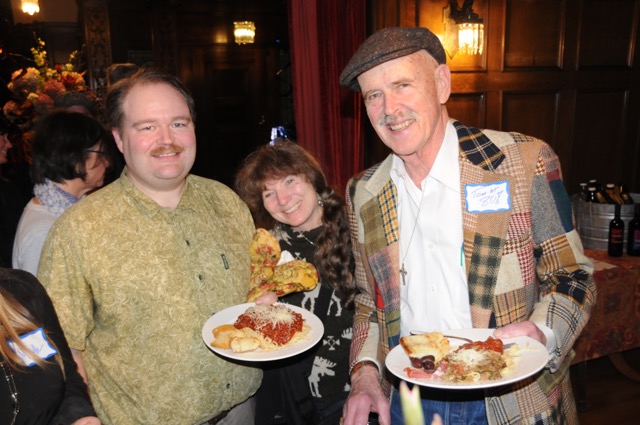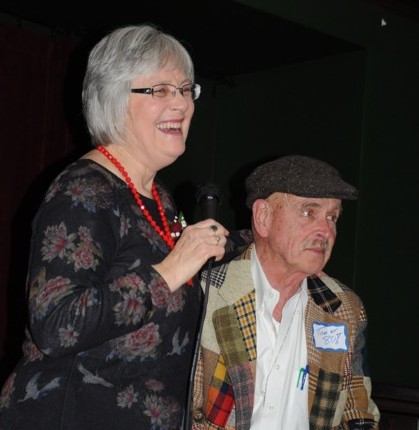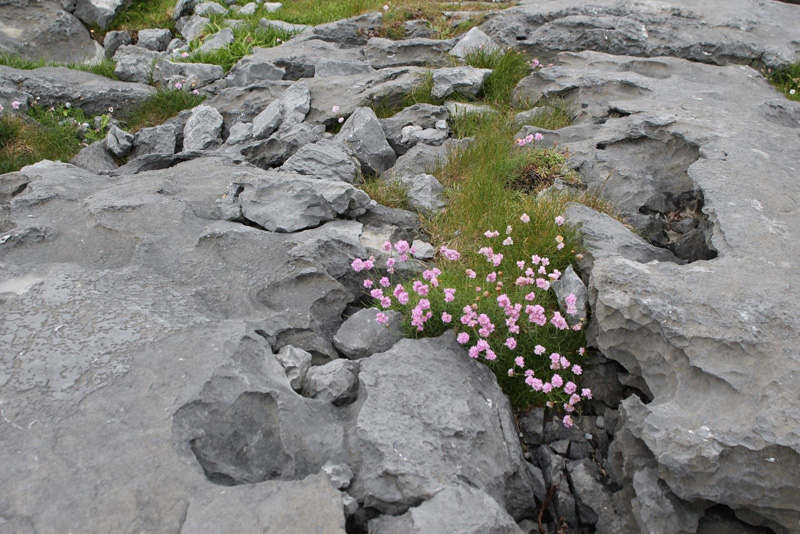Two springs ago, I fasted from church, for lent. I suppose this raises a lot of questions including, “what do you mean?”
I mean, I stopped going to buildings on Sundays during the one-hour block which is broken into thirds, of music, expository teaching and community announcements. What I do not mean is that I decreased the importance of my relationship with God or people.
You see, I had developed an allergy. Most of us have at least one. I do not mean we get the sniffles when pollen shows up or our throat itches when we have shellfish. I mean, there are things in our lives that we just cannot be around without reacting to with a strong fight or flight response. We react in a way, over and above what seems reasonable, against the stimulus. For some, it is looking at snakes. For others, it is taking a test. For others, it might be the mere suggestion of asking someone out. For people with PTSD it is more serious and reminders of a season of trauma can put them right back in the middle of it.
One trigger, for me, is a specific phrase. When I am in a church building, and someone says “the Word of the Lord”, after reading from the bible, my anxiety goes through the roof and I have trouble making small talk after the service.
In “church” settings, I had been told that there are some people going to hell and some heaven, that there are clear requirements for this life if only you will take the bible seriously, read it and find them. Having doubt or anxiety was evidence that you may be on the “hell track”. Lack of confidence was evidence of uncertain security in death.
In light of this worldview, on one occasion, as an adult, I read the entire bible in a week and a half trying desperately to find the requirements for heaven’s access. I lost sleep and developed an acute anxiety response. When someone says “The Word of the Lord” I wonder again, “Have I missed the detail that gets me in?” “Am I likely going to hell since I already feel scared of death and doubt my security?” “Which instruction about being right with God is the important one that gets me safety?” This is not a phrase that comforts me. It feels like a threat.
There are other triggers besides this one, for me. Certain music, certain verses, a pastor’s tone of voice and even the expectation to bow one’s head.
When I have little defense against these fears and since selective numbing is rarely successful, I numb completely and none of the potential joy of a church service permeates my defense. Depressed and internally shut off from feelings, I want to stand and shout “Don’t say that!” but fear the rejection of having a dissenting view. Burdened with conflict, little healing or joy comes through during time in church. Church often feels lonely.
Like allergies to proteins, there are various strategies to deal with allergies to social stimulus. For pollens, Benadryl limits allergic reactions. For anxiety, there are medications too. However, depending on the reaction severity you may need to avoid the stimulus entirely. Think of this like anaphylaxis. If you are shutting down emotionally due to your anxiety response in a situation, it may be that you would benefit from just not being around that stimulus. Give your emotional immune system a rest.
This may be disruptive to the idea that conventional faith expression is always helpful. Sometimes people, like me, have become allergic to an aspect of a faith culture. In those cases, a fast might be helpful. It does not need to be permanent. You might consider it a “cleanse” to give your body and mind a rest. Reduce the reaction intensity and perhaps try returning with small doses of the given stimulus. That is, if you want to return.
I have gone to church a handful of times since that spring: usually to see a friend or participate in a small group discussion. I do not react like I used to and my defenses are slowly relaxing.
Does your emotional immune system need a rest? Is there a thing that triggers your anxiety so much that you shut down? Is there anything you can set aside to allow healing to take place? What would that look like?
Thoughts and feedback are welcome.
By Lynne Baab
Anna is a skilled musician and music leader. A few years ago she felt called by God to fast from music for a year. She had no idea why, but the urging from God was strong. As the year went by, she found herself engaging in new forms of intercessory prayer. Now, long after the music fast ended and music is again a major part of her life, these forms of intercessory prayer have remained significant for her.
If you’re hungry for more of God, try fasting. Anna describes fasting as “tying a ribbon around my finger to remember God.” When we reach for the thing we are fasting from – food, coffee drinks, technology, music, shopping – we remember God is more important than those items or activities. We remember we are asking God to transform us and help us draw near.
Are you hungry for a deeper prayer life? Another person I interviewed for my book, Fasting, told me that whenever her prayer life seems stale, she fasts from news media for three days. Every time she reaches for the radio or newspaper, she prays instead. In the times when she would normally read the news online, she sits down with her Bible and prayer journal. She says that after three days of this pattern, she feels reconnected to God and recommitted to making prayer a central activity in her life.
Are you hungry for justice? Early Christians fasted from food in order to give that food to the poor. They drew on Isaiah 58: 6-7 which defines a true fast as “to share your bread with the hungry.” Mother Teresa recommended fasting from shopping and from favorite activities in order to save money to give to people in need.
Do you hunger for a clearer sense of God’s priorities in your life? Consider fasting for a week from a favorite activity, such as Facebook, TV shows, movies, sitting in coffee shops or shopping. In the times that you would normally engage in those activities, do something different. Read your Bible, write in your journal, go for a walk in nature, or listen to music, and as you do that different thing, do some reflection on the pattern of your life and try to listen to God’s voice in your reflections.
Fasting is for a season, not forever. The benefit of fasting is that it changes the patterns of our daily lives, which jars us into attentiveness. We become more perceptive of what God is saying to us and how God is leading us. Because the pattern of our life is disrupted temporarily, we notice unexpected things and we see ordinary things differently. We draw near to God in new ways.
Throughout much of Christian history, fasting involved abstaining from all food or certain food items. With the rise of eating disorders, many people need to avoid fasting from food. And with the rise of many aspects of life that give pleasure or fill large blocks of time, people today fast from a wide variety of activities in addition to food.
The purpose of fasting is not to prove anything to God or ourselves. Instead, its purpose is to clear away some clutter so we can better see God, hear God and serve God. Fasting helps us act on our hunger for more of God.
Questions for reflection:
1. Have you ever fasted? What kind of hunger in your life did it address?
2. How would you finish this statement? More than anything else, in my life I hunger for . . .
3. Is there something you could give up for a day, a weekend, a week or the rest of Lent that would make space for that thing you hunger for?
4. Write a prayer about something you hunger for.
Developing Images of Restoration for Lent
Lent is often seen as a time of discipline. Whether we are adding or subtracting from our habits, there is a sense that purposeful/habit forming choice, in our lives, makes a difference. How we play this out can be wide, expansive and creative. No coffee for lent is great, but the options go on ad infinitum. To give purpose and direction to my habits, I find it useful to develop a picture of where I am headed. A target if you will.
Here is an excerpt from a short essay I wrote. It is the bones of my worldview and helps target my habit forming. My target is “restoration” and my habits flow from the image of restoration I have imagined. The prompt for the essay was “create a new philosophy or religion” however, I think I have articulated nothing new. I think you will find Jesus’ image of God’s kingdom here.
“This is Sozo: the Practice of Restoration Imagine a family, with plenty to eat, free of disease, with shelter and opportunities for creativity. Imagine a community caring for one another through mutual affection, seeking humble relationship with the divine and balancing their needs with the health of the environment and of other communities. This is a picture of Sozo. Sozo is the ancient Greek word for “restoration.” It is a root theme shared by Jewish, Christian and Islamic religions. Sozo is a picture of moving towards thriving wholeness.”
From this image, my Lenten discipline gains form. I can develop concrete practice that moves towards my image of restoration.
What is your picture of restoration? Where are you headed? Where is your community headed? What habits can you practice to build capacity to head in that direction?
Thanks to Melissa Phillips for the beautiful original painting.
By Nils von Kalm
Lent is a solemn time of year for me. In a way, it’s possibly my favourite time in the Christian calendar, alongside Christmas. They are my favourite times for vastly different reasons though.
The season of Lent is traditionally seen as a time of sacrifice in preparation for the remembrance of the sacrifice of Christ. For people like me, who tend to a more melancholic temperament, Lent is something I can relate to quite intimately.
As well as being on the melancholic side, it is my life experiences that make Lent relatable for me. Without making too much of a point of it, I have known a fair amount of suffering in my life, even though I live in one of the most affluent countries in the world and have everything I want materially.
It is the times in my life that I have suffered the most that have been the times when I have also grown the most. It has been said by a few people that life is about how you deal with loss, ultimately to the loss of your life. It is through my losses, much more than through my successes, that I have learned my greatest lessons in life.
Our culture doesn’t deal well with loss though. Sadly, much of the Western church is no different. We turn the volume louder in our praise and worship sessions and sing endlessly of God’s favour and blessing.
This is not to undermine the fact of God’s blessing, but the way it is often played out in our churches does not reflect what I read in the pages of Scripture. Every leader in both the Old and New Testaments went through a wilderness experience. And the author of most of the New Testament, St Paul, experienced lashings, shipwrecks, beatings and rejection as part of his journey of faith. Paul above anyone knew what it was to suffer.
And as for Jesus himself, he was known as a man of sorrows, familiar with grief (Isaiah 53:3). When he told his followers that he was going to die, they simply could not comprehend that this could happen to the messiah. But it was this fact of a crucified messiah, humiliating and shameful as that concept was in Roman times, that slowly turned the Empire on its head.
Those first Christians knew that the way to life in Christ was through death. They even rejoiced that they were considered worthy to suffer for their faith (Acts 5:41).
As we approach Easter, Lent reminds us that there is no resurrection without death. Franciscan priest Richard Rohr talks about the great paradox of Christian faith being that, to live we must “die before we die”. It is easy to forget that being Christian is not about self-fulfillment, it is about self-emptying. Philippians 2:6-8 reminds us that Jesus emptied himself to die a shameful and humiliating death on a Roman cross. It was only after this that he was raised to new life.
The wonderful paradox of Christian faith is that we die to live, we suffer to gain glory, and we surrender to gain the victory we have always longed for.
This is what Lent reminds me of. Lent is not a time of morbidity; it is instead a time of reality. Life is hard, and our self-sufficient attempts to make it easy ultimately fail. It is in acknowledgment of the crucified One, in submission to him, that I find the life and meaning that my life has been seeking from the day I came into this world. As I look forward to Resurrection Sunday, I continue to trudge the road of life, joyful in hope, and hopeful in perseverance that my trudging is not in vain.
The great Christian hope is that the suffering the world experiences now will not compare to the glory that awaits us (Romans 8:18). Jesus is making all things new. This solemn time of Lent will pass, but it must be walked through, not walked around. It is in walking through it though that we realise the hope that we are more than conquerors (Romans 8:37).
Far from being morbid, Lent is about this hope. It is even about joy. That is why Paul could boast in his weaknesses and glory in his sufferings. He knew that strength lay in weakness, that victory lay in defeat.
Lent runs counter to the culture of success and winning that characterizes our world. Lent is a witness that the road to life is narrow and uphill, but the point is that it is the road to life. In these days of violence and fear, a broken world needs Lent like never before.
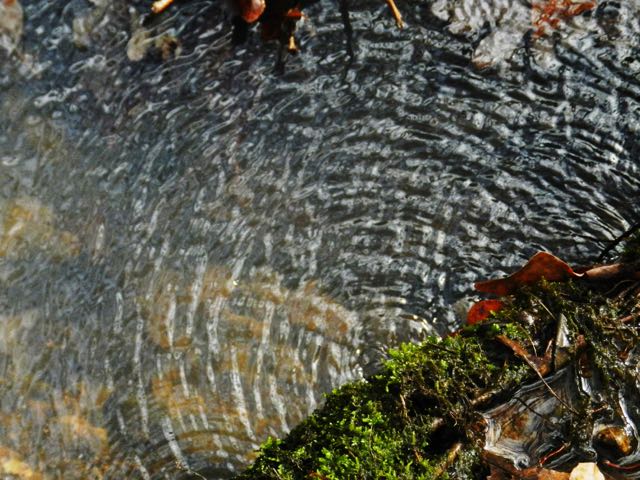 By Rowan Wyatt
By Rowan Wyatt
At this time of Lent one is thinking of the preparation of the return of the living Christ, the Messiah, the Holy Son of God. We think about our own preparations at this time with prayer and searching thought, looking to that Easter day at the end of the Lenten period.
On the journey of life as a Christian one of the preparations we make is following the sacrament of Baptism, dying to ourselves, being ‘buried’ and then passing up through the cleansing waters to be a new creation in Christ. So with that thought of dying and being ‘born-again’ (John 3:3), we see that preparation for baptism and preparation for Lent are very similar indeed.
Before I moved to Tunbridge Wells I lived in a small village and every Easter Sunday we would head out of the church building at sunrise to pray and worship as the sun rose. We would stand by the shores of the vast lake and wait for the sun to peep over the tree tops on the horizon. As it did the waters of the lake would burn with a vibrant orange gold colour and we would all cheer and pray aloud creating a wonderfully blessed atmosphere and a very poignant moment. We all used to look at the water and think of Jesus passing through the waters on his Baptism and how we had followed him.
My own tale of baptismal preparation is an example of how NOT to do it. I wasn’t ready. I really wasn’t ready! I had only been a Christian for a few weeks and knew nothing of faith, knew nothing at all of what Baptism meant. My church had no classes and were so keen for this rare event, in their church, of baptizing a new believer that I was fast tracked through it, having little idea what was going on. Whilst I don’t doubt God was present during my baptism I don’t feel I was truly baptized, that lack of preparation and ignorance of what I was doing I feel robbed me of the kind of baptismal experience others would later relate to me. I still feel that my ill prepared baptism requires a conclusion so I am going to seek to renew my Baptismal vows at my church, then I will feel I have truly died with Christ and rose again, a new creation.
I feel Lent is just the right time to begin considering Baptism if you so far have not passed through the waters. The preparation runs parallel to the Lenten period leading up to that Easter day where we celebrate the risen Christ. The two run in tandem and I hope to have the chance to renew my Baptismal vows around Easter time.
Buried in Water By R.R. Wyatt
From the Jordan banks you stepped
Through the growing crowd gathered
And the flowing clear water glistened joyfully
As your foot first entered in.
There standing open mouthed, waist deep
The Baptist cousin waits and watches
You wade confidently in to the swirling coolness
Of the bubbling blessing waters.
There in the sky a white speck descends
Outlined against the sun soars a dove
Majestically angelic as from where it came
A spirit holy proffers benediction.
Plunged deep under into the depths
Fulfilling all righteousness, you rose
Dripping diamonds into the rivers riches
And settling softly on you, the dove.
And to the sound of applause my eyes open
Dripping water, hair plastered to skin
My clothes a tightened sodden shroud
I died along with you in that blessed water.
© Rowan Robert Wyatt 2015
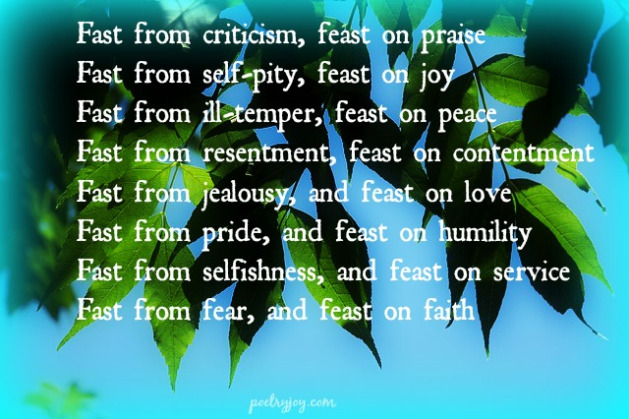
photo by Joy Lenton
post by Christine Sine
This last weekend we celebrate my husband, Tom’s 80th birthday. Some of our friends came from Texas, California, Oregon and British Columbia to join a crowd from here in Seattle. We partied heartily and so as you can imagine I am finding the idea of fasting, which is our theme as we enter the third week since Lent began, a little challenging to think about.
Yet in many ways there was some serious fasting going on this weekend too. Many of our guests had sacrificed quite a lot to be with us. Some had given up a day’s wages, others had spent a lot on air tickets, and still others gave up days of their time to help cook an amazing meal for 70 people or get creative with our decorations and creative offerings for Tom.
In an address during Lent in 2015, Pope Francis said:
if we’re going to fast from anything this Lent, Francis suggests that even more than candy or alcohol, we fast from indifference towards others.
I feel that our celebrations this last weekend were an amazing example of this type of fasting. People gave up so much to rejoice with us. Yet together we gained a rich feast.
Feasting and fasting are often intertwined. We give up our personal comforts to help those who lack provision. We give up our indulgences so that everyone can have enough. We give up our freedoms so that others can be liberated.
As God reminds us in Isaiah 58:
What I want in a fast is this: to liberate those tied down and held back by injustice, to lighten the load of those heavily burdened, to free the oppressed and shatter every type of oppression. A fast for Me involves sharing your food with people who have none, giving those who are homeless a space in your home, giving clothes to those who need them, and not neglecting your own family. (Isaiah 58:6-7, The Voice)
True fasting, this kind of fasting is, I think, a feast in disguise, as the quote above, from Joy Lenton’s blog, suggests. The fasting of our personal wants is a real fasting of indifference and it should be shared not just with friends but all around us. The riches we gain are far more nourishing and satisfying than what we “give up”. Our doing without opens our eyes and ears to appreciate in new ways the abundance of God around us. And the sharing of that abundance brings a wave of delight and joy that is rarely experienced on our own.
What is Your Response?
Sit quietly, close your eyes and do some reminiscing. Think back over the last couple of years. What situations come to mind that at the time seemed like fasts but were in fact feast in disguise? What occasions can you remember where initially you felt you were giving up something of importance that turned out to be a reaping of abundance instead?
What does this teach you about yourself, about others and about God? Is there a change in your behaviour that God might be asking of you this week in response?
Back in the early 1990’s (Nov 90 – Mar 94), I was stationed at Sheppard Air Force Base in Wichita Falls, Texas. It was my first Active duty assignment with the Air Force. Moving from a small yoked parish in Northern Minnesota (two churches, combined membership of maybe 120) to this installation was mind blowing! I went from having three serious counseling cases in three years to having perhaps as many as 40 in one week. During that time, our nation went to war. And we are still at war today. The lives of military members and the life of this chaplain changed drastically when the phrases deployment and expeditionary cycle came into our lexicon.
In 1993, I was able to attend a concert that Michael Card, a Christian musician, put on in Wichita Falls. It was a transformative moment for me. The setting was very simple. His piano was at the center of the stage and he didn’t have a back-up band. It was just Michael Card, his piano, and the audience. He would stop to talk in between his songs. He talked about the development/writing of the particular song and what the message was that he hoped would come from it.
I was experiencing significant spiritual burn-out by that point thanks to too many death notifications, having to identify the body of my colleague who had been murdered, and lots of high stress counseling cases. And, with the work-load and hours, personal spiritual development and refreshment had taken a back burner. My spirit was parched. Spiritually, I was running on empty. So when Michael Card began to talk about his next song, “In the Wilderness”, he hit a chord deep within my spirit.
When you are tired and weary… When your prayers seem empty and your scripture study is dry… Don’t give up! Keep on Praying! Keep on Reading! Keep on Walking with the Lord! Everybody has wilderness experiences in their lives… He said, “I have had them in mine…” And then he sat down and began playing the song. Here are the lyrics:
In the wilderness
In the wilderness
He calls His sons and daughters
To the wilderness
But He gives grace sufficient
To survive any test
And that’s the painful purpose
Of the wilderness
In the wilderness we wander
In the wilderness we weep
In the wasteland of our wanting
Where the darkness seems so deep
We search for the beginning
For an exodus to hold
We find that those who follow Him
Must often walk alone
In the wilderness
In the wilderness
He calls His sons and daughters
To the wilderness
But He gives grace sufficient
To survive any test
And that’s the painful purpose
Of the wilderness
In the wilderness we’re wondering
For a way to understand
In the wilderness there’s not a way
For the ways become a man
And the man’s become the exodus
The way to holy ground
Wandering in the wilderness
Is the best way to be found
In the wilderness
In the wilderness
He calls His sons and daughters
In the wilderness
But He gives grace sufficient
To survive any test
And that’s the painful purpose
Of the wilderness
Groaning and growing
Amidst the desert days
The windy winter wilderness
Can blow the self away
In the wilderness
In the wilderness
He calls His sons and daughters
To the wilderness
But He gives grace sufficient
To survive any test
And that’s the painful purpose
Of the wilderness
And that’s the painful promise
Of the wilderness
Lyrics by Michael Card
Michael Card helped me to find my way to the well of the Lord’s refreshment that evening. And his words and the song have stayed with me all these years as I have traversed the world and ministered in a wide variety of settings. In the Wilderness, God gives grace sufficient to survive any test.
When Jesus went to the wilderness where he was tempted by Satan after 40 days and nights of fasting and praying, God gave Christ sufficient grace to survive that test. As Jesus drew closer to Jerusalem and the Cross, God gave him grace sufficient for the test. And on the cross, God’s grace was sufficient.
Lent is a time of self-reflection in the church year. It is a time to go inward and take inventory of your spiritual life and journey. While these are things we are called to do each and every day, Lent is a special season set aside to do just that. I have walked with a lot of people through the years through their own personal wildernesses. And I have walked through many wildernesses of my own.
The picture above is of a place on the Western edge of Ireland called The Burren (Gaelic Boireann, meaning “great rock”). It is a desolate looking place and especially harsh when the wind is blowing off of the North Atlantic. At first glance, all you see are jagged rocks that are completely barren. However, as Denise and I got out of the car and began to walk over the rocks, it was amazing! The rocks that looked so harsh, jagged, and barren were actually holding life. There were plants flowering and growing out of the cracks in the rock where dirt and seed had lodged. Even in the “wilderness” hope was alive in the form of those rugged and beautiful flowers!
Dear reader, are you walking through the wilderness? Are you tired? Are you feeling like life is empty? You are in the wilderness. But you are NOT alone! Take it from a Padre who has plenty of wilderness experience, you are not alone. In the words of Michael Card, keep praying… keep reading Scripture… keep walking… For the Lord walks with you. May God bless and keep you as you walk through the wilderness with grace sufficient for any test.
As an Amazon Associate, I receive a small amount for purchases made through appropriate links.
Thank you for supporting Godspace in this way.
When referencing or quoting Godspace Light, please be sure to include the Author (Christine Sine unless otherwise noted), the Title of the article or resource, the Source link where appropriate, and ©Godspacelight.com. Thank you!

![512px-Looking_out_from_Redeemer_Church,_JerusalemBy DiggerDina (Own work) [CC BY-SA 3.0 (http://creativecommons.org/licenses/by-sa/3.0)], via Wikimedia Commons](https://godspacelight.com/wp-content/uploads/2016/02/512px-Looking_out_from_Redeemer_Church_Jerusalem.jpeg)
